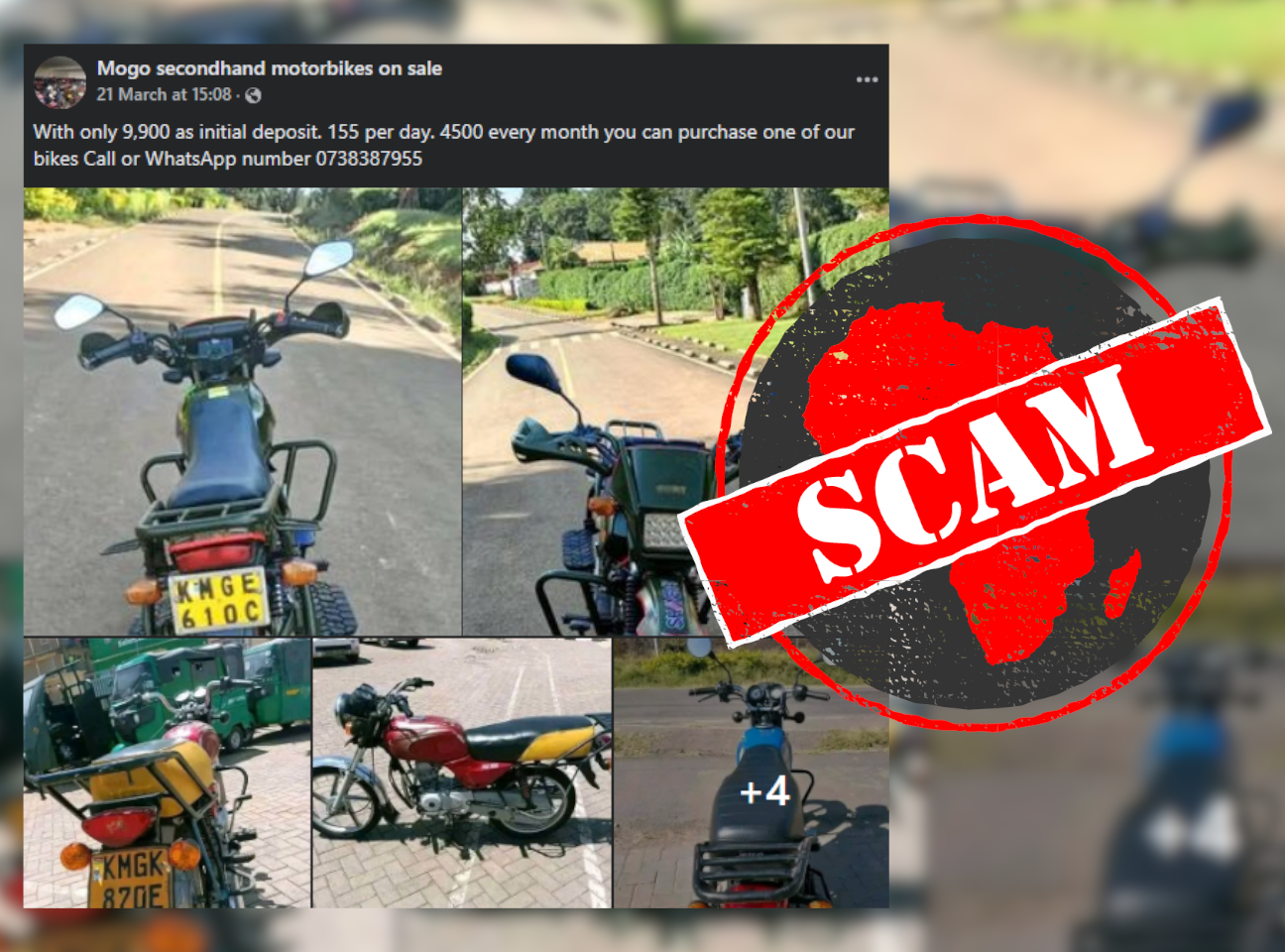IN SHORT: Many young Kenyans eager to make a living from the thriving motorcycle taxi industry may jump at the chance to get motorbikes on credit and pay for them in flexible instalments. But not all offers on Facebook are legitimate. These two pages are run by imposters and should be ignored.
The Facebook pages Peter Wachira Mufasah and Mogo secondhand motorbikes on sale are offering Kenyans motorbikes on credit.
Each of them uses the brand of Mogo – an asset finance company operating in Kenya – to lure users.
The first page uses Mogo’s graphic as its profile picture and its name in its adverts. The second page features “Mogo” in its name.
The pages ask users to pay a deposit to receive the motorbikes and promise them they can pay off the rest in instalments.
But users are asked to send their identity documents, Kenya Revenue Authority (KRA) details, photos, and the details of people to guarantee the loan.
The offers have been posted on different dates here, here, here, here, here, here, here, here, here and here.
But are these legit pages and offers? We checked.

Signs of scam
We noted that the pages have mixed and suspicious identities.
The first page started under the name “M_kopa phones” on 3 September 2022. This was perhaps an attempt to impersonate M-Kopa, an asset finance company operating in Kenya. It then changed name to “Peter wa mark holdings” before settling on the name “Peter Wachira Mufasah” that is using Mogo’s brand to advertise.
The second page was created on 5 July 2022 under the name “EMPAWa Sacco motorbike deposit 15'000 0101708530” – a clear attempt to impersonate Empawa Sacco, a savings and credit cooperative operating in Kenya. It later changed to “Watu credit motorbike deposit 15'000 0785740174”, “MKOPA bodaboda deposit 15'000 0785740174” and finally settled on “Mogo secondhand motorbikes on sale”.
These frequent name changes by both pages are clear attempts to fool users about their true intentions.
We noted that despite having a large number of followers, none of the pages have a functioning website, important for creating brand awareness, boosting credibility and reaching new customers. This is another red flag.
Africa Check visited Mogo’s website and found links to its official social media accounts, including Facebook.
Its official Facebook page has more than 57,000 followers. Its “transparency section” shows that it was created on 25 March 2019.
The two suspicious pages are run by imposters and should be ignored.
Republish our content for free
For publishers: what to do if your post is rated false
A fact-checker has rated your Facebook or Instagram post as “false”, “altered”, “partly false” or “missing context”. This could have serious consequences. What do you do?
Click on our guide for the steps you should follow.
Publishers guideAfrica Check teams up with Facebook
Africa Check is a partner in Meta's third-party fact-checking programme to help stop the spread of false information on social media.
The content we rate as “false” will be downgraded on Facebook and Instagram. This means fewer people will see it.
You can also help identify false information on Facebook. This guide explains how.




Add new comment